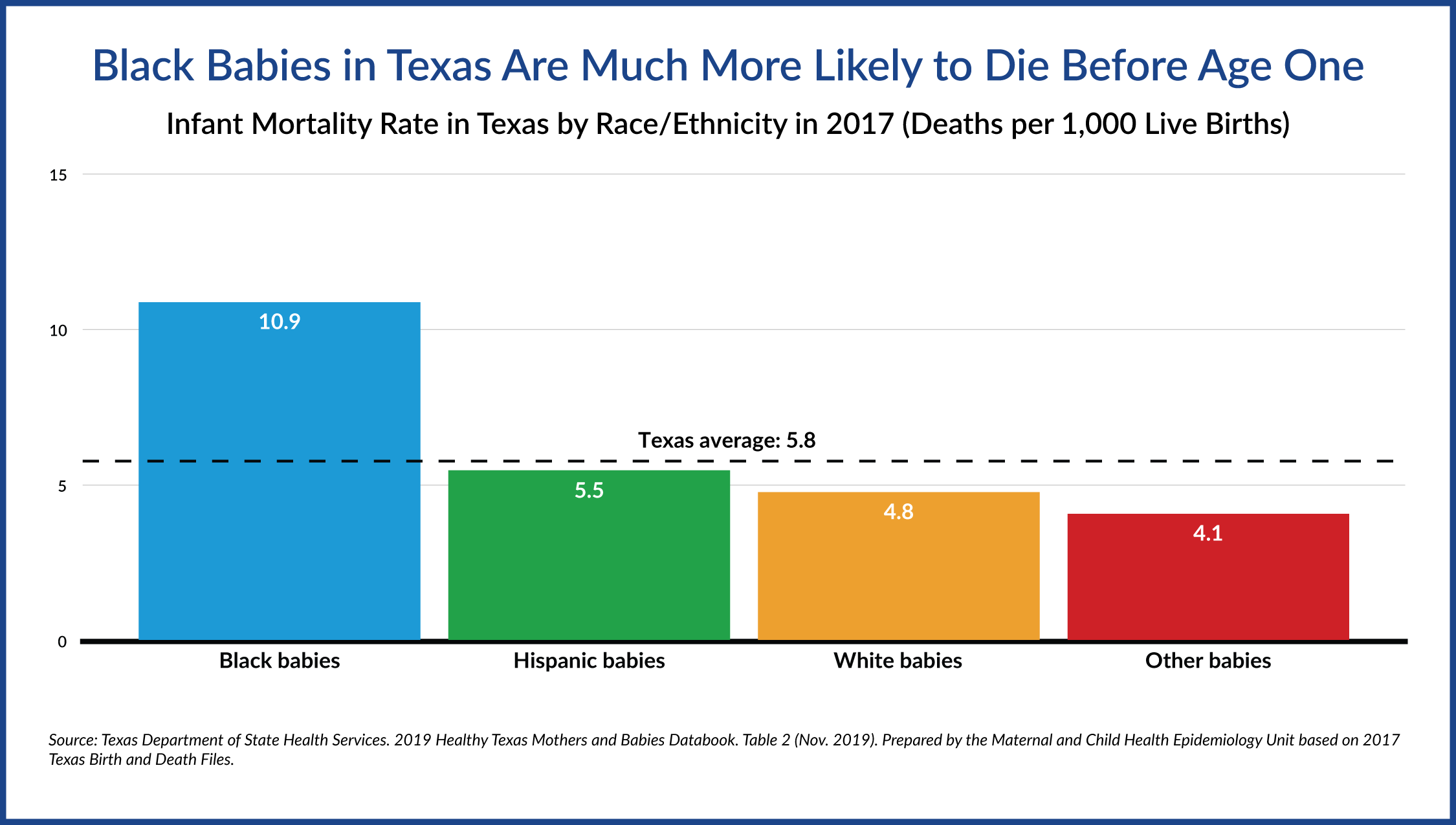This spring, we shared with you our policy brief showing that Texas has important health programs for women — but that big gaps remain in those programs. For example, we noted that Texas is one of the few remaining states where women with jobs below the poverty line typically have no access to health insurance.

Building on that research, today we want to share a second maternal health policy brief with you. It discusses what’s at stake as the Legislature and Governor make decisions about these maternal health programs and related policies. It also provides eight maternal health policy recommendations for state leaders.
The brief notes that the coronavirus pandemic has exacerbated many of our state’s maternal health challenges, such as maternal depression and the sky-high Texas uninsured rate.
So what’s at stake as state leaders make decisions on state policies regarding healthy moms, healthy pregnancies, and healthy babies?
For Texas mothers and babies, it can be a matter of life and death, long-term health consequences, and — in the case of infants and toddler — brain development during this critical state of early childhood.
While families of all backgrounds are affected by these state policy decisions, Black moms and babies bear a disproportionate impact, with often tragic consequences:

In addition to saving and improving the lives of moms and babies, our brief points out that smart maternal health policies can also save the state a lot of money. Over the first year of life, HHSC estimates a premature baby will cost Texas Medicaid an average of $100,000, while a full-term baby costs a tiny fraction of that: $572.
So what should Texas leaders do to support maternal health? Our brief explains the following state policy recommendations:
- Extend Medicaid coverage for new mothers from 60 days to one year postpartum, as recommended by Texas’ Maternal Mortality & Morbidity Review Committee. (Last year, this legislation passed the Texas House but stalled in the Senate, failing to become law.)
- Protect the state budget for Medicaid and CHIP health insurance and maintain eligibility, benefits, and provider rates. (To help address the state’s revenue shortfall, state leaders should urge Congress to include increased Medicaid funding and state fiscal relief funding in coronavirus relief legislation.)
- Maintain funding levels for Healthy Texas Women and Family Planning Program as they save the state money and help Texas women get preventive care for healthy, planned pregnancies.
- Maintain funding levels for the Department of State Health Services’ (DSHS) maternal and child health division, including funding for TexasAIM initiative and Texas’ Maternal Mortality Review Committee.
- As HHSC implements a new postpartum care package in “Healthy Texas Women+” in FY 2021, the Legislature should continue funding needed in future years so new mothers can continue to receive postpartum care via HTW+.
- Promote group prenatal and well-child care innovations — such as CenteringPregnancy and CenteringParenting — that have proven, lasting benefits for mothers, infants, and toddlers.
- Build off of Texas’ Child Psychiatry Access Network (CPAN) as a foundation for a perinatal psychiatric access program, which offers training and teleconsultation with psychiatrists so more health professionals feel comfortable serving moms facing maternal mental health challenges.
- Support policies creating comprehensive coverage for Texas’ low-income adults.
We look forward to working with you and state leaders to take these important steps for healthy moms and healthy babies.



